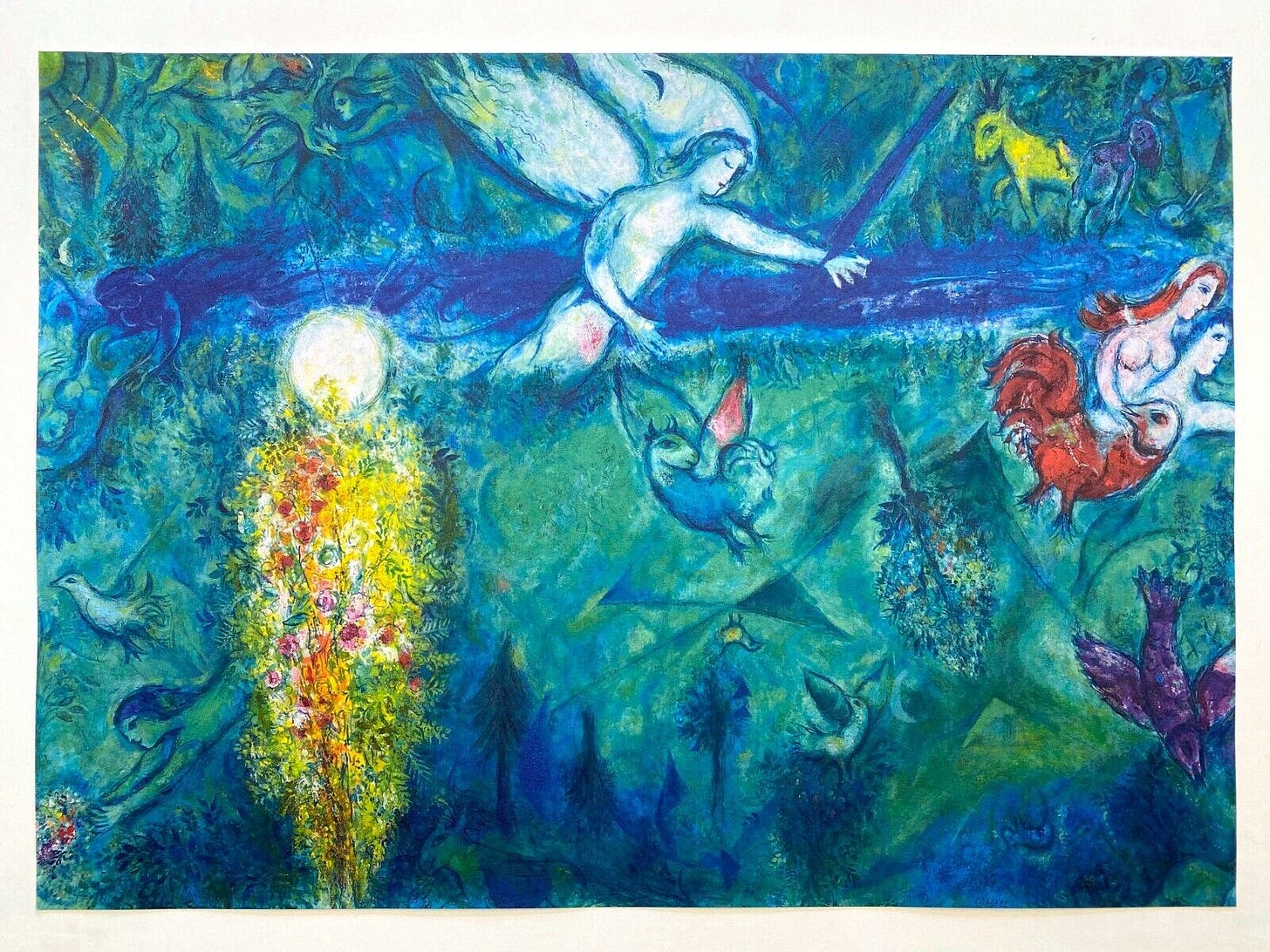This day, too, is a poem
(after Jeffers)
The messiah lay on her back under a whirligig rain,
samaras spinning out from the great maple.
Anemochory stammer,
closer than Danzig,
less hawk-cry
than paperthin pennon,
dark seed bound to its own image,
whistling its way down.
The messiah closed her eyes and let the receiver drift.
Winter now, dog-wrath howls, closer,
we whistle for company among the ruins, feeling
for the nettle sting of a coming end
beneath the white, wishing
on some star-seed stratification.
She, oldest of muezzins, begins to sing
calling me to bring graft to root
promising amulets dangling by horsehair from limb.
I close my eyes beneath that hand-crafted sky
and watch the spinning state elseway falling
toward a fetid ground it cannot abide
as innumerable hands meet columns
palms flattening to press.
Wingspan near, in the dark between the trees
a woodthrush unlocks a door.
Dressed in harpsichord morphemes
something beyond this blue
pronounces a breachpoint.
The messiah now a fox without den
goes ahead of us, out beyond the walls.
Reindeer moss beneath us
whispering antlers out
from about the ears—woman and man—
we settle in to await nightfall
and the company of whatever
world comes next.
This a revision based on some thoughts following on Dougald Hine’s invoking of Campanga and worlds ending specifically in this podcast here and in general at his substack here.
Image is Chagall’s Adam and Eve Expelled from Paradise




Maybe it’s the moon pulling at the saltwaters of this earth, pulling the tides high up on the shores around me and in me. You see, I don’t cry much these days (the moon hides so well behind all the clouds, I rarely see her), but this poem brought tears to my eyes. Because I see the ruins, too, and I’m doing my best to plant dandelions and sing songs of praise to the weeds that take root in the trouble, making way for the life to come after... Thank you for your poem! 🙏🏻